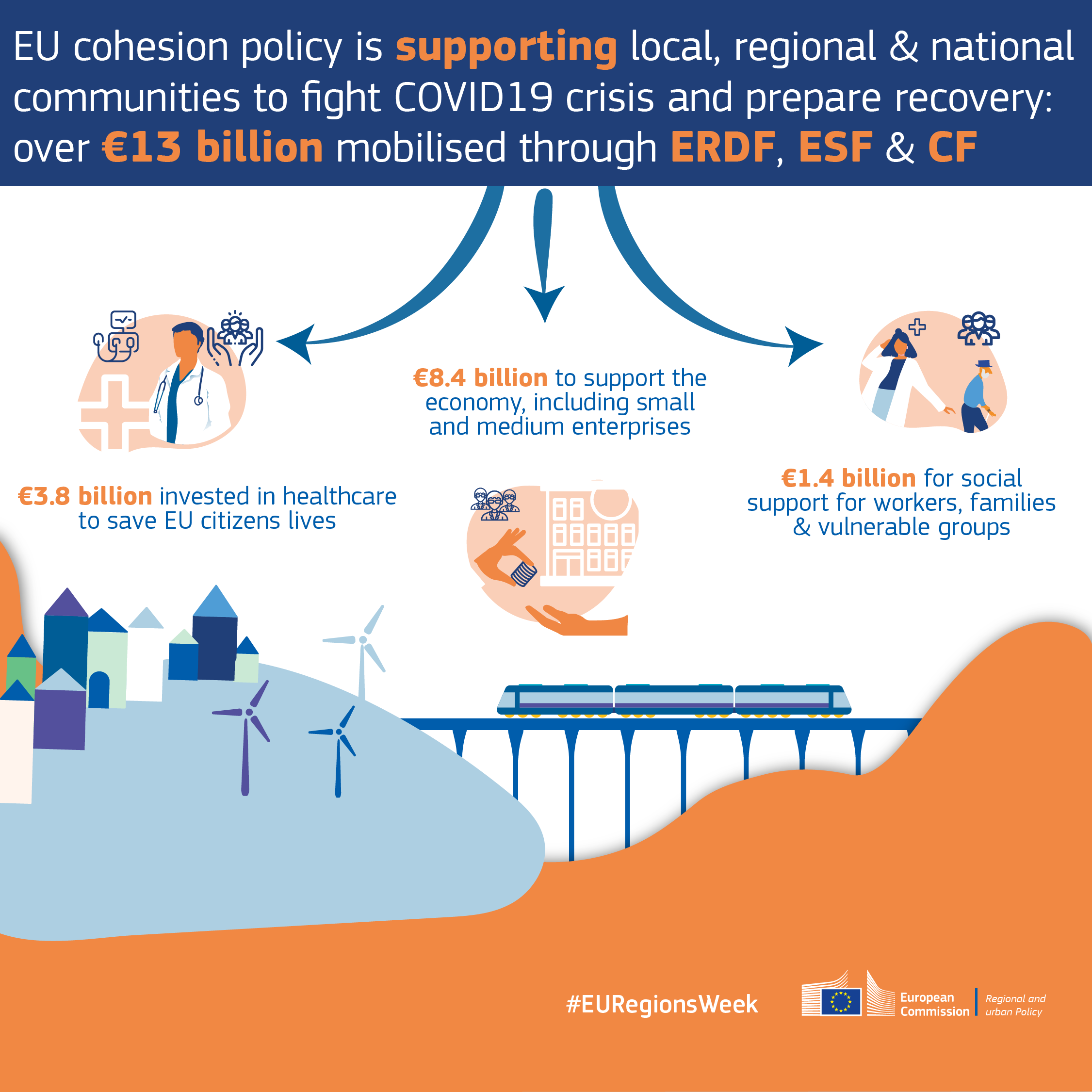
Within the framework of investment initiatives responding to the health crisis (the Coronavirus Response Investment Initiative (CRII) and the Coronavirus Response Investment Initiative Plus (CRII+), around EUR 13.5 billion of Cohesion Policy funds have been mobilised to fight the Covid-19 pandemic. The CRII package does not offer new EU financial resources. It provides flexibility to use existing, unspent resources and re-direct them to where they are most needed. The CRII/CRII+ initiatives were supplemented on 27 May with the presentation of the REACT-EU package, which is currently under negotiation with the Council and European Parliament.
Data on how the Cohesion policy funds, including the ESF, have been supporting Member States in the fight against the Covid-19 crisis is now available on the Cohesion Open Data platform – the online platform through which you can see how funds are being distributed in Member States. You can consult the page here. You can see which countries are mobilising funds, and how much. The data can be broken down by country or programme.
To date, the European Social Fund(ESF) has supported 25 million people under all its objectives (employment, social inclusion, education, training and public administration reform), including throughout the COVID-19 crisis.
The ESF has played a fundamental role in the immediate response to the Covid-19 crisis by mobilizing EUR 1.4 billion of direct support for people. It has been the main Fund used to support social services, retention of employment, vulnerable groups and others, e.g. by providing support to short-time work arrangements, supplementary wage for health care personnel, IT equipment, personal protective equipment, increased access to services for people in vulnerable situations, support to self-employed, distance education and training.
The situation is changing rapidly, and all of these figures will likely increase over time. New countries and measures will be added and the picture will become clearer.
For more information:
- Coronavirus Dashboard: Cohesion Policy Response: https://cohesiondata.ec.europa.eu/stories/s/CORONAVIRUS-DASHBOARD-COHESION-POLICY-RESPONSE/4e2z-pw8r/
- The Open Data Platform provides access to data on financing and achievements under the ESI Funds 2014-2020 : https://cohesiondata.ec.europa.eu/
- Check out the evolution of ESF investments in the health sector since 2014: https://cohesiondata.ec.europa.eu/stories/s/qyuv-h9j2
- Explore and compare the detailed investment themes across the ESI Funds, countries and thematic objectives: https://cohesiondata.ec.europa.eu/stories/s/Tracking-progress-with-detailed-cohesion-investmen/e7u2-9gu2#2.-european-social-fund



